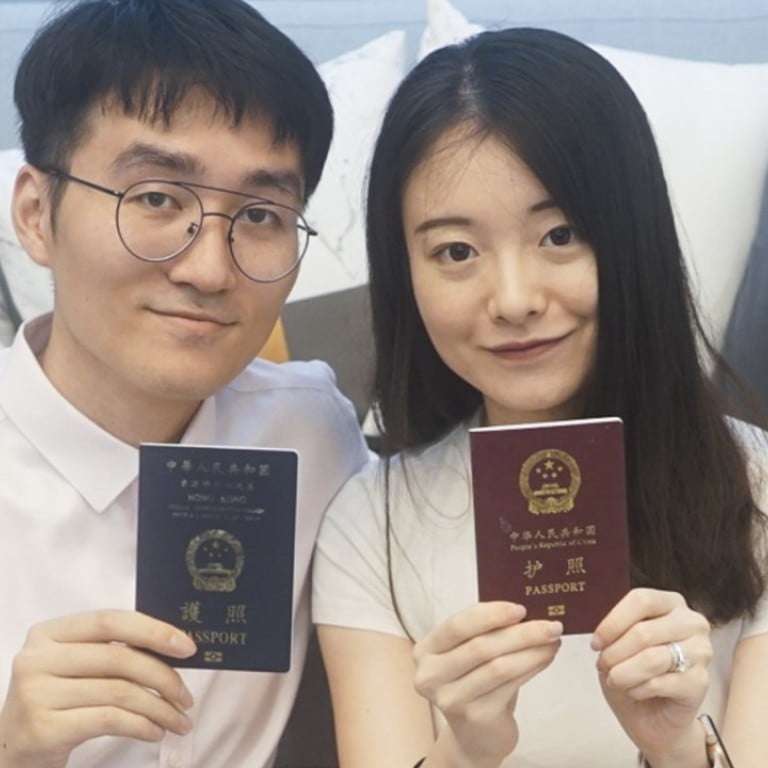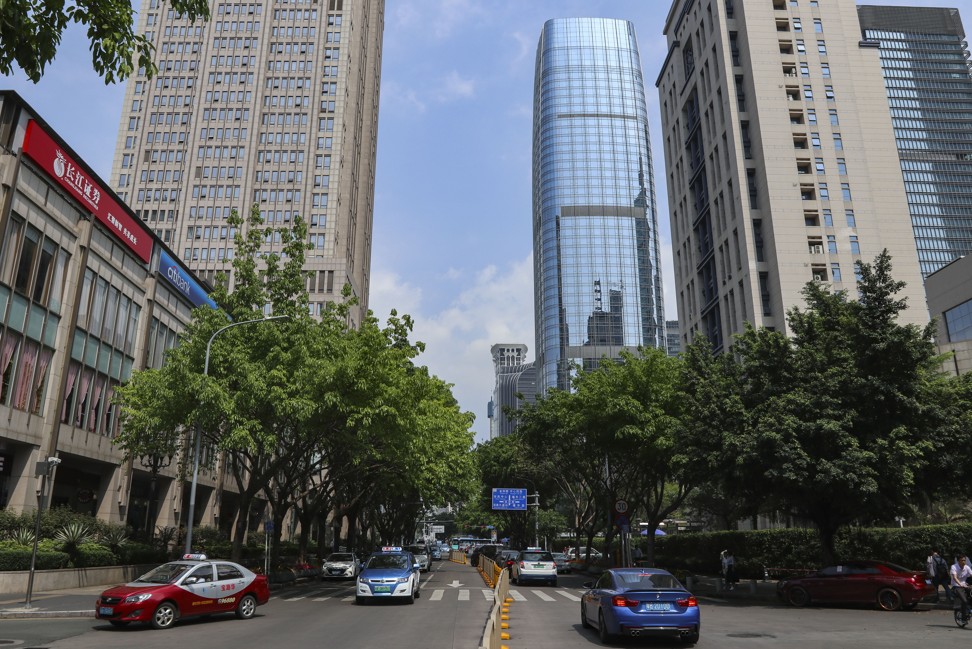
Why this mainland Chinese man chose Hong Kong residency (and why his wife didn’t)
Gao Yuan and Yu Duo no longer live in the city, which he thought friendly and safe, but she found unwelcoming
Security software developer Gao Yuan, 32, had little hesitation when he applied for permanent residency in Hong Kong in 2012, after seven years of study and work. He found Hong Kong a “friendly” and “safe” home.
But four years later, his wife Yu Duo, 26, who came to Hong Kong to study in 2014, chose not to apply for residency when she graduated with a master’s degree from City University. Yu said she did not find Hong Kong “amiable”.
Gao and Yu, who married in Hong Kong in 2016, both benefited from a city government programme helping non-local graduates work, and gain right of abode, in the city. Upon their graduation – in 2008 and 2015, respectively – the government granted them a special visa under the Immigration Arrangements for Non-local Graduates (IANG).
Successful applicants are granted a year’s unconditional stay in Hong Kong after graduation. If after that year they are stably employed, they can apply for a two-year extension, with further extensions available after that. They can apply for the right of abode after seven years – including time spent studying.
It took Gao, a native of Ningbo, Zhejiang province, two renewals to reach seven years. It would have taken Yu three to reach the same point, had she not given up the chance when it was time to apply for the first renewal in 2016.
“IANG was helpful, but it was not decisive,” Gao said of the scheme, and the different choices that he and his wife made.
Gao said one important reason was how differently they felt in embracing and being embraced by the city.
He spoke highly of Hong Kong as “convenient, safe, diverse and internationalised”, a city that has broadened his horizons with critical thinking and unlimited lifestyle options. In contrast, Yu told him she felt “unwelcome”.
“I came to Hong Kong in 2005, when local people were friendly to mainlanders – my local classmates offered to translate Cantonese for me and asked me to teach them Mandarin,” Gao recalled.
“But when my wife came here in 2014, the atmosphere had changed so much that she felt unwelcome among local people, and some of her schoolmates gave her reproachful looks.”
Tensions between Hong Kong and the mainland have intensified in the past decade over a number of cross-border issues such as pregnant mainland women flooding city hospitals in a bid to get residency rights for their children, the so-called anti-locust protests against the influx of mainland visitors and arguments over political reforms in the city.

While Yu enjoyed a year of unconditional stay provided under the IANG scheme after graduation, the couple decided to settle in Shenzhen, a mainland city bordering Hong Kong, after Yu got a job as a product manager there. Gao has been commuting across the border almost daily to work.
I wasn’t treated badly but neither did I feel that the city wanted to retain outside talent or bothered to learn about what people like me were thinking
Yu said: “I wasn’t treated badly but neither did I feel that the city wanted to retain outside talent or bothered to learn about what people like me were thinking…the distance in interpersonal relations here seemed close to an attitude of indifference to me and the convenient internet-based services prevalent on the mainland were seldom available in Hong Kong.”
Gao’s schoolmate Vincent, who wished to be known only by his English name, was not attracted by the right of abode in Hong Kong either, though he has held an IANG visa and worked in Hong Kong for almost 10 years.
“It’s unnecessary to give up my mainland residency for residency here,” said Vincent, who is originally from Guangzhou, Guangdong province. He said the IANG scheme was enough to keep Hong Kong’s door open to him.
Wu Wei, who also obtained residency in 2012 and founded a video production house in Shenzhen last year, said he was not sure if Hong Kong would still be his land of opportunity in the future.
“A decade ago, you might have admired the stability and level of development in Hong Kong. Ten years after that, you might feel that the mainland is developing faster than Hong Kong. Who knows how things will be in another 10 years?” Wu said.

